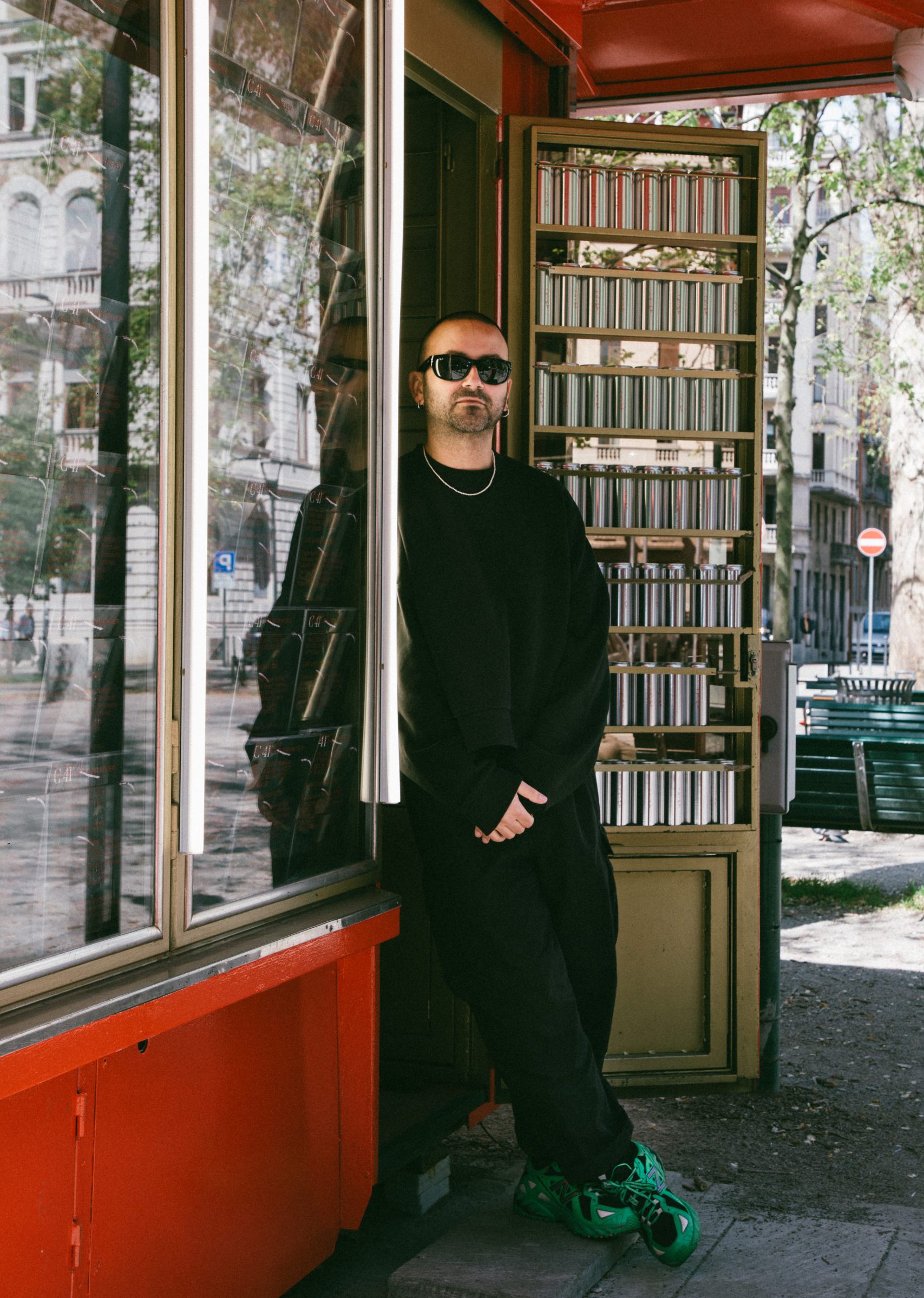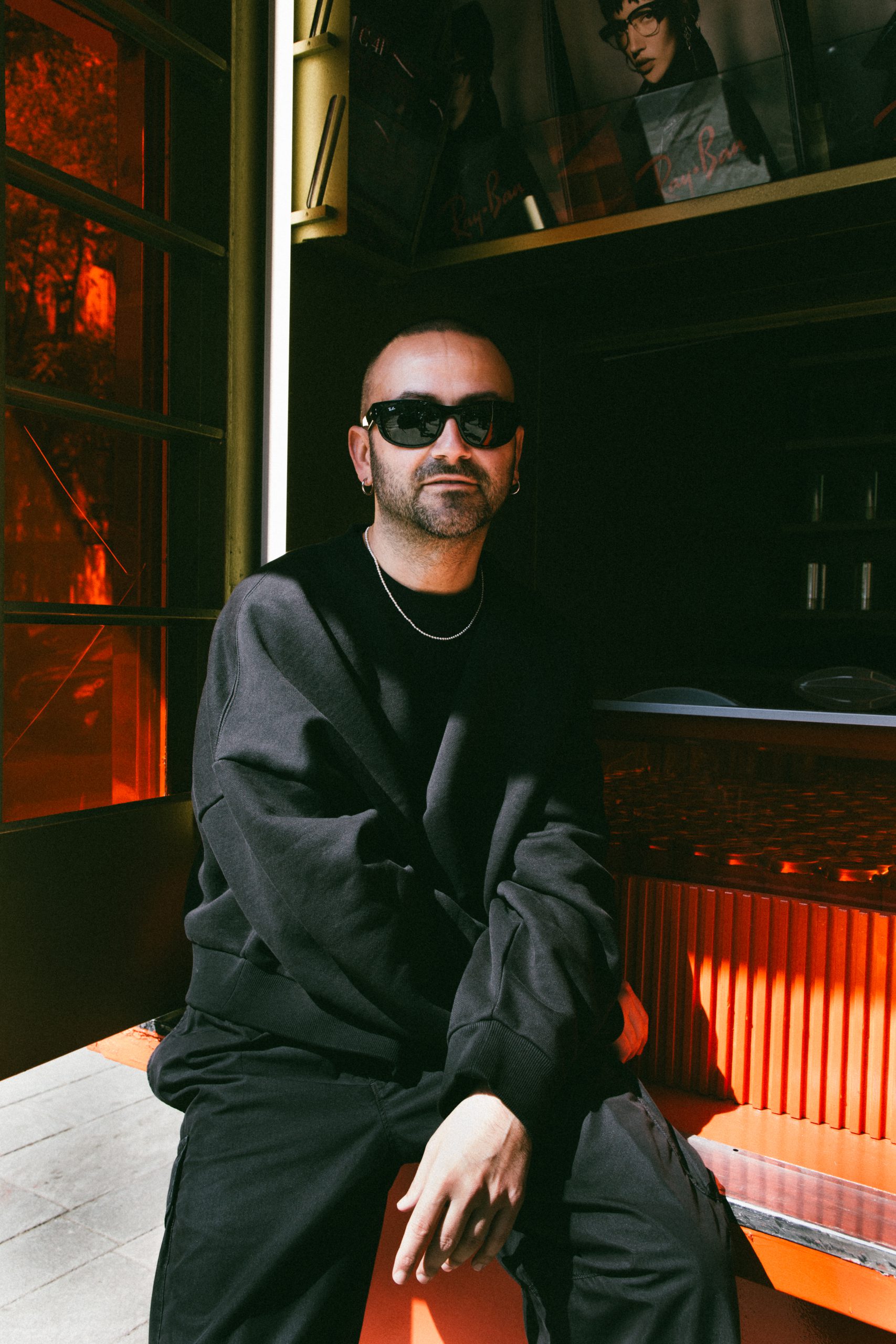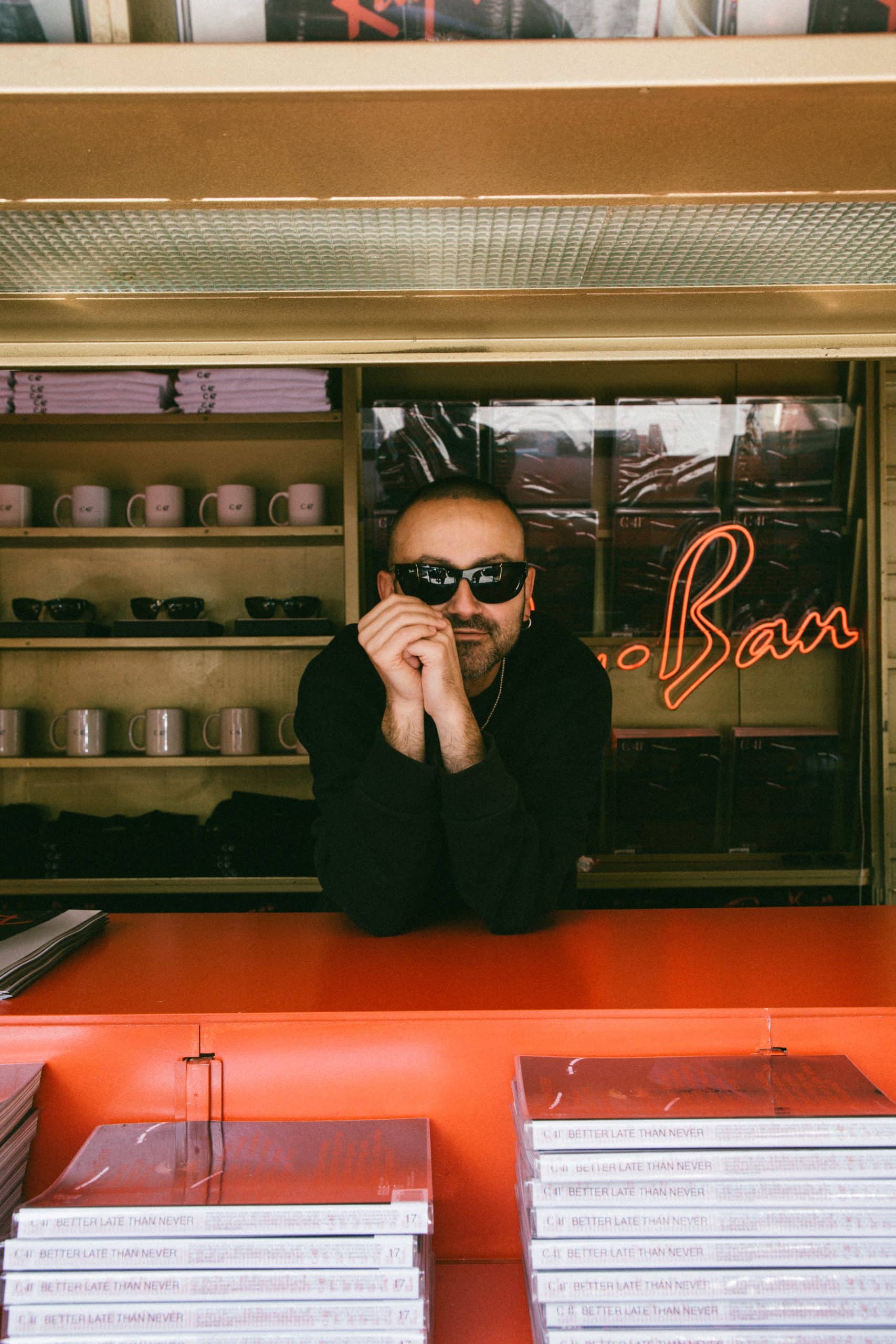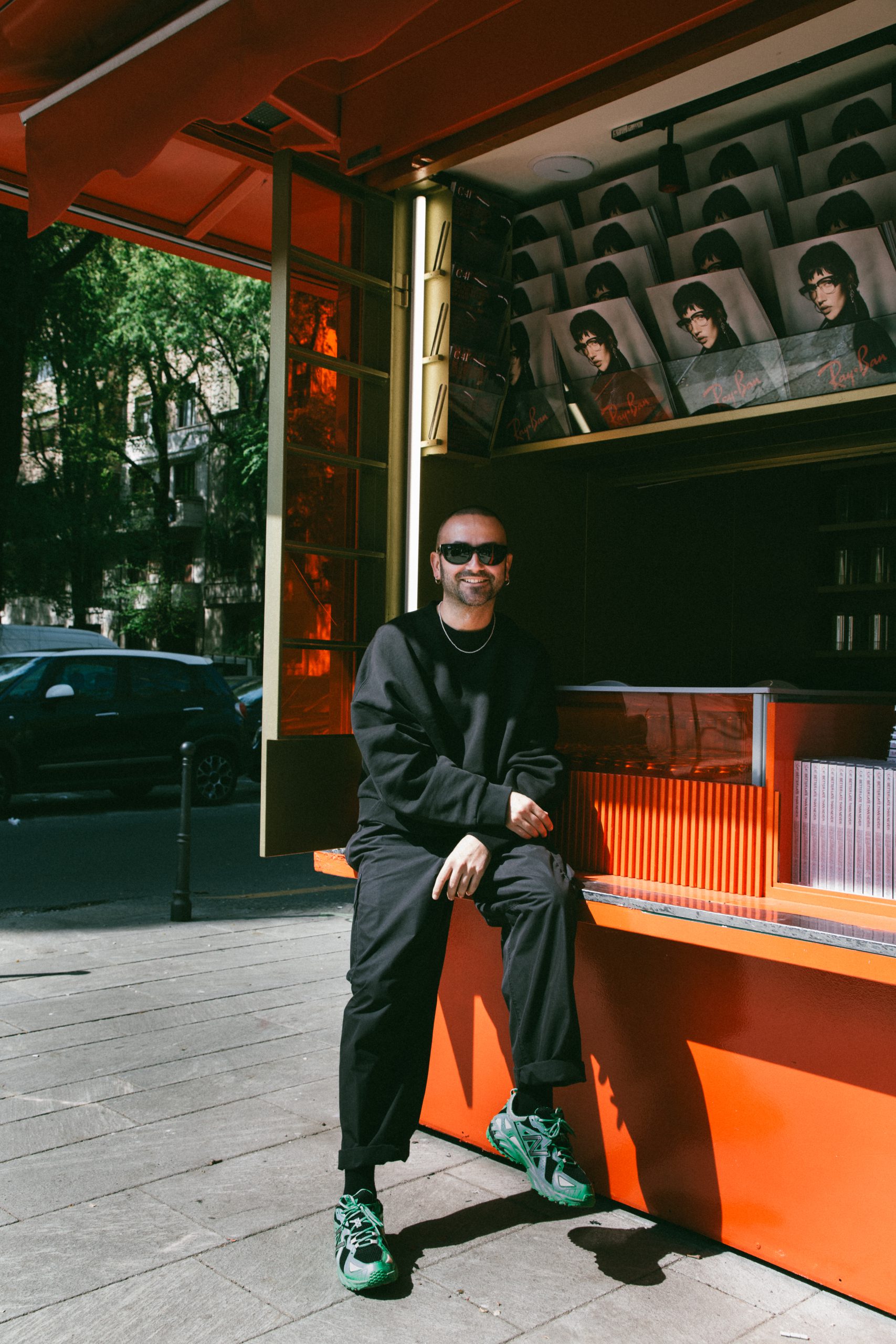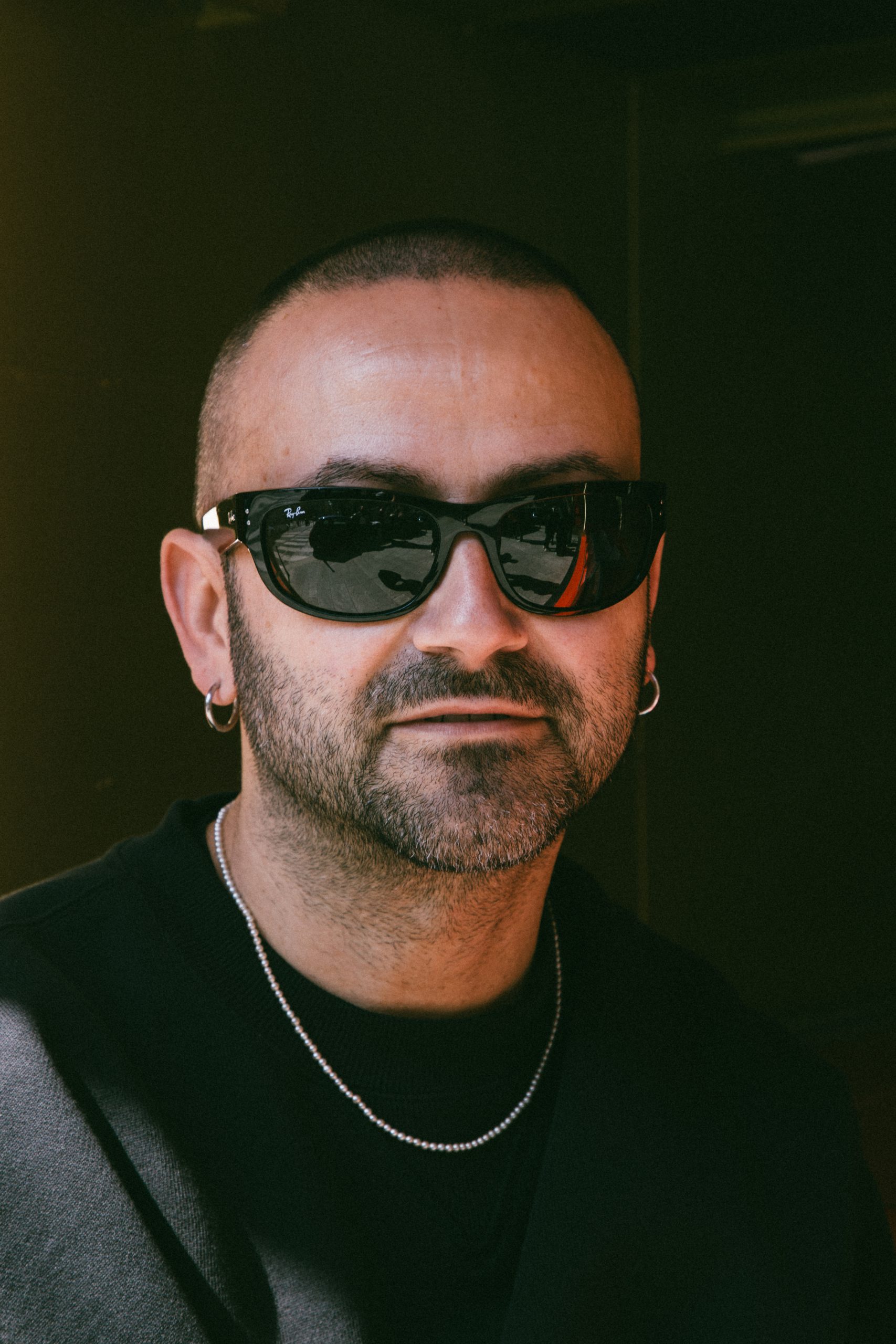In a musical landscape that’s becoming increasingly homogenized, Populous continues to carve out a sound that’s personal and disarming. With Isla Diferente, his new album born during an artist residency in Lanzarote, the Salento-based producer weaves together Latin rhythms and ambient electronica to create a sonic narrative that reflects the island’s stark, mystical power. In this interview, he opens up about how instinct, mistakes, and cultural fusion shape his creative process—revealing a visceral relationship with sound that embraces humanity, landscapes, and the invisible.
Ritamorena Zotti: Your sound blends electronic, tropical bass, and global influences. How did you develop this musical identity?
Populous: Nothing about it was planned or studied. I come from the “school” of electronic music—Warp, Ninja Tune, Morr Music, Mille Plateaux… At some point, I discovered you could make entire records using only percussion. Then, years ago, a friend told me that some DJs in Berlin were playing a genre called cumbia. Boom—instant revelation.
RZ: Was there a turning point in your career when you realized music would be your path?
P: I don’t think there was ever a real turning point. If I’m still making music, it’s because I feel that moment hasn’t happened yet.
RZ: Genres can often be limiting. How would you describe your style without using traditional music categories?
P: When I founded my label, it was the music itself that suggested the name: Latinambient. At the same time, there’s a big gap between what I produce and what I play in DJ sets. But I don’t see that as an identity crisis. One of my favorite labels, Leaving Records in Los Angeles, has a motto I love: “All genre.” It’s a beautiful way to define not just music, but life.
RZ: What usually inspires you when starting a new project? Do you begin with a sound, an atmosphere, an image?
P: I don’t have a fixed method—each album has its own story and creative process. But often, it’s colors that guide me. That was the case for this record too. Lanzarote has a very narrow color palette—lava and sparse vegetation. It helped me focus on the aesthetic direction of the project.
RZ: You’ve traveled a lot, and your music absorbs influences from many cultures. Is there one place that’s especially shaped your sound?
P: Mexico City is my home away from home. Incredible climate, tons of greenery, avant-garde art at every level, amazing food.
RZ: You frequently collaborate with a variety of artists—from singers to visual creatives. How do you choose your collaborators?
P: It’s very rare for me to work with someone I don’t know personally. I already use a lot of software, so I try to keep the human factor high in my collaborations.
RZ: How important is error in your creative process? Have you ever found beauty in a sound that came from a mistake? What role do technology and experimentation play in your music?
P: My university thesis was titled The Aesthetics of Sound Recording. It was all about how a technique or recording style can shape a work, mistakes included. The first paragraph analyzed Cat Stevens’ The Wind, where there’s a clear pitch drop in the first few seconds—probably a tape slowdown. I’ve always been obsessed with how records are produced. That’s part of the art, too.
RZ: When producing a new track, do you rely more on instinct or technique?
P: Instinct, 100%. I don’t consider myself a nerd, though I deeply admire those who are. I have no technical training, can’t read sheet music, and often can’t even install software on my own. I used to be ashamed of that for years—but now, it just doesn’t matter anymore.
RZ: Do you think clubbing and electronic music still hold a strong social or political function today?
P: I like to think that after years of crisis, clubs will rise again and become the home of new countercultures. True clubs are free spaces—even from power dynamics, whether political or musical. It’s always satisfying to see how, in those contexts, everything the mainstream holds important—from major-label music to political norms to conventional sexuality—is set aside in favor of marginalized voices.
RZ: If you could work with any artist from any era, who would it be and why?
P: J Dilla. Changed my life.
RZ: Do you have any rituals before going on stage or starting to produce?
P: I’m not the type to light palo santo and walk around the studio. But sometimes I think maybe I should be.
RZ: What can we expect from your upcoming projects? Are you already exploring new sonic directions?
P: I’m working on a more dance-oriented EP, and I’d love to keep making music for fashion.
RZ: Isla Diferente was born during your residency in Lanzarote, such a mysterious and untamed island. How did the surroundings influence the album’s creation?
P: I wanted to immerse myself in a place where silence was part of the landscape. Silence played a key role in composing the album.
RZ: The contrast between ambient sweetness and electronic Latin rhythms is a central theme in the album. How did you find a balance between these two very different sonic worlds?
P: I like being the one who’s “out of context,” always. Sometimes contrasts are hard to manage, but they’re also necessary if you want to explore something new—something that hasn’t been said yet.
RZ: The physicality of the island—with its volcanic landscapes and raw nature—seems to permeate the album. How did you translate this “materiality” into your musical approach?
P: I used a lot of organic sounds—field recordings, processed acoustic instruments. I purposely detuned synthetic sounds to make them feel more human, while tuning found sounds by ear. I wanted the record to feel both cold and emotional, analog and alien.
RZ: Was there a moment or a place in Lanzarote that especially inspired you during the writing process?
P: Yes, a moment I won’t easily forget. I was driving a car full of friends—we were looking for the Mirador del Río, but something went wrong with the GPS. We ended up on a remote road on top of a hill. The view was incredible. We decided that would be our mirador. We had some weed and a Bluetooth speaker. Someone played “Nostalgia” by Mulatu Astatke. I got emotional.
RZ: Isla Diferente aims to capture the essence of a powerful, austere place. In what ways do you think this album stands apart from your previous work—both sonically and emotionally?
P: It’s definitely a darker record than my earlier ones. I also think it marks a step forward production-wise—and I owe that to Rocco Rampino, who co-produced the entire album. It was the first time I had someone by my side during arrangement and production. It was wonderful. My mental health benefited greatly.
And as I always say: this is yet another Populous record where the artwork is way better than the music!
